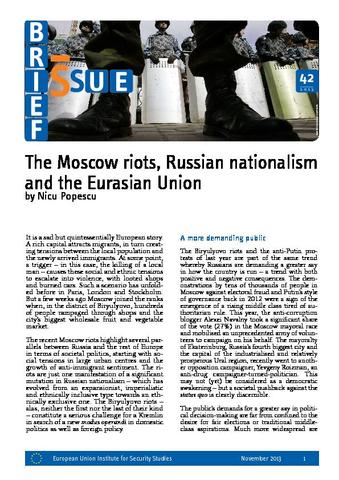You are here
The Moscow riots, Russian nationalism and the Eurasian Union

It is a sad but quintessentially European story. A rich capital attracts migrants, in turn creating tensions between the local population and the newly arrived immigrants. At some point, a trigger – in this case, the killing of a local man – causes these social and ethnic tensions to escalate into violence, with looted shops and burned cars. Such a scenario has unfolded before in Paris, London and Stockholm. But a few weeks ago Moscow joined the ranks when, in the district of Biryulyovo, hundreds of people rampaged through shops and the city’s biggest wholesale fruit and vegetable market. The recent Moscow riots highlight several parallels between Russia and the rest of Europe in terms of societal politics, starting with social tensions in large urban centres and the growth of anti-immigrant sentiment. The riots are just one manifestation of a significant mutation in Russian nationalism – which has evolved from an expansionist, imperialistic and ethnically inclusive type towards an ethnically exclusive one. The Biryulyovo riots – alas, neither the first nor the last of their kind – constitute a serious challenge for a Kremlin in search of a new modus operandi in domestic politics as well as foreign policy.